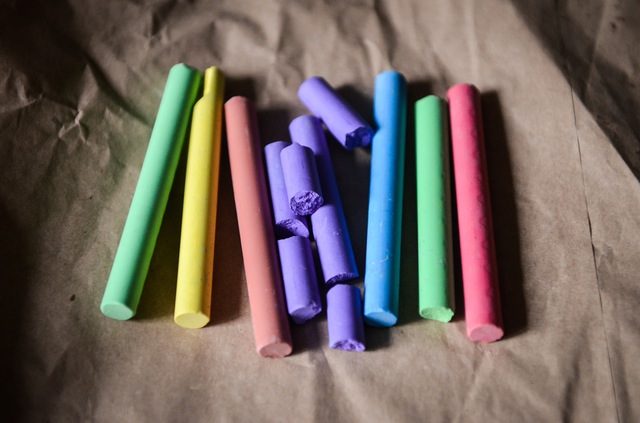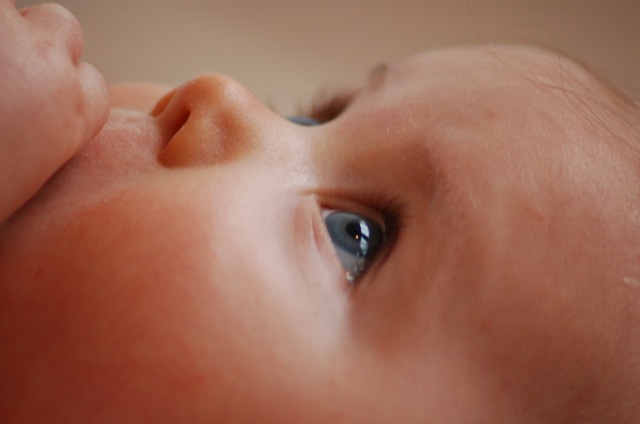True Colors: Unexpected Hues in Russian Posted by Maria on Aug 2, 2016 in Culture, language
We have covered basic color vocabulary on this blog before. However, it goes without saying that a direct translation from the learner’s first language into Russian will not work for all nouns. How do you say brown hair, blue eyes, or black horse? If you answered, “коричневые волосы,” “синие глаза,” or “чёрная лошадь,” keep reading to learn about some special cases.
Not All Blonds Are Created Equal
Just as in English you may not choose to say “yellow hair” — unless you mean to be unflattering — you do not say “жёлтые волосы” or “белые волосы” in Russian. Blond hair has its own names in Russian.
Predictably, a blond(e) person is called блондин (male) or блондинка (female). Register-wise, this word sounds like it belongs in a fashion magazine, and you probably wouldn’t call your cute 4-year-old niece “блондинка,” unless you were trying to be ironic. To my ears, this sound too “adult.”
Light or fair hair may be called светлые волосы. What I’ve encountered in the US (folks from other countries, how is it where you live?) is that all hair colors lighter than mid- to dark brown are called “blond,” be it “beach blonde” or “dirty blond.” In Russian, the light brown/dark blond hues are normally referred to as русый. This may be used both about the person and their hair — русые волосы and русый парень (a guy with light brown hair).
On a related note, gray or white hair (hair that’s lost its pigment) is called седые волосы. Brown hair is never called коричевые волосы — use каштановые волосы (chestnut hair) or тёмные волосы (dark hair) instead.
Old Blue Eyes
Talking about eyes also isn’t straightforward in Russian. As you will remember, Russian has two words for blue — голубой for light blue and синий for dark blue. Speakers of Russian have been found to distinguish shades of blue better than non-speakers.
Blue eyes are usually called голубые глаза. Синие глаза is reserved for an unusually deep/dark hue of blue.
Similarly, we don’t say коричневые глаза for brown eyes. The usual phrase is карие глаза.
Dark Horse
A final area that has specific color names that I will cover in this post is horse coat color. Somewhat counterintuitively, a black horse is called вороная лошадь.
A brown horse is called гнедая лошадь. According to Wikipedia, this word comes from the Czech for “brown,” hnědá.
Have you come across any of these colors in Russian news or books? What other colors do you find challenging or interesting?

Build vocabulary, practice pronunciation, and more with Transparent Language Online. Available anytime, anywhere, on any device.







Comments:
Walter:
So is a вороная лошадь from ворона, i.e. saying that it’s a crow colored horse? That’s fantastic!
Every language has its quirks. One of my favorites in the English language about hair color is when, usually a kid, has very light hair, almost white, you can say that they are towheaded or are a towhead (sounds like toe). It refers to flax.
Maria:
@Walter According to Wikipedia, you are correct about вороной.
Right, “ginger” also may or may not be intuitive for red hair.
samonen:
When I was a teenager I had a pen pal in Pennsylvania. In her first letter she described herself as having “blond hair”. Later, when she sent a photo, I was somewhat surprised to see that her hair was (light) brown.
This post was a very welcome reminder. It also led me to learn about my native language — I only had a very faint idea about how all the different color horses are called in Finnish!
I think вороной is from ворон, raven. In fact in Old Russian or Old East Slavic the word воронъ (the “hard sign” denoting a vowel) was used for black color.
Maria:
@samonen It’s fascinating that Finnish makes a similar distinction to Russian between blond and light brown. I wonder if that’s because there are more blond and fair-haired people in the North, broadly defined, so more intricate distinctions emerged?
You are right about вороной, it is related to both ворон and ворона in Russian.